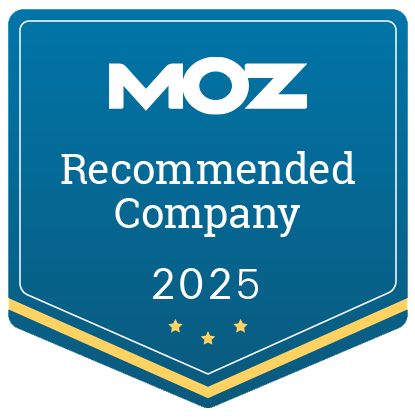You’ve done a great job building out your website… You’ve added pages to showcase your areas of expertise, you’ve included some testimonials or logos that demonstrate your clients’ work, and you’ve even added a blog. Awesome! Surely, Google will reward your efforts by promoting you to the #1 position in the search engine results pages (SERPs), right?
Unfortunately, this is not the case.
When you’ve put a lot of effort into your site, it can be frustrating to find that you’re on page five million of the SERPs where no one will ever see you. The thing is, the search engines’ algorithms are mysterious beasts, and taming them can be a job all in itself. Fortunately, you don’t have to stay on the millions-of-pages status forever. Here’s what you need to know about why your website isn’t showing up on Google and what you can do to fix the problems.
Test to See if Your Site’s Been Indexed
If your site doesn’t appear in Google search results or if its performance is poorer than you’d expect, it might not be properly indexed by Google. To test this theory, search for your exact URL by using the following formula in Google’s search bar:
site:yoursitehere.com
If your site’s been indexed, you should see it, along with several pages, blogs, and other relevant information found within your website. You’ll know it has been indexed when it appears on the SERPs. However, when your site is brand new, it might not have had time for Google’s web crawlers to do their thing. It can take over a week for search engines to update their search results, and if your site is new, you won’t have any inbound links that trigger the crawlers to find it quicker.
However, there are still some additional obstacles you might need to overcome to make sure people see your site when they’re searching.
1. Your Site Isn’t Indexed
If you followed the step above, you’ve already either determined that (a) you’ve been indexed or (b) you’re still hanging out in cyberspace, waiting for the algorithms to notice you. If the latter is true, create an account on Google webmaster tools and point the platform to your sitemap.xml URL. Here, you can request Google to crawl your URLs. Bear in mind that Google gets tons of requests, so this feature may not work right away, particularly if your site is new or large.
2. Your Site is Too New
As mentioned, if you just launched a shiny new website, it’s going to take a little time for results to come in. It’s a natural inclination to want immediate results, but if you’ve just hit the ‘publish’ button, sit tight and wait for the algorithms to catch onto you before panic sets in. New sites can typically take around a month to get noticed.
3. You Included “No Index” Tags
Your code can actually include language that specifically tells the search engines not to index your site or certain pages. Search for the code, and if it exists in your site, now you know why Google is staying away from you.
4. Your Site Isn’t Optimized for Search Engine Crawling
After you’ve submitted your website to Google, a spider starts crawling your pages’ content. However, these spiders don’t understand your website as people do. Instead, they study your pages for meta information, keyword saturation, and relevant content. As such, you need to format your site in ways that speak the spiders’ language and make sure you include information for the crawlers to pick up on.
5. You’re Using Competitive Keywords
Search engines are guiding millions of users to navigate billions of websites. If you want to stand out from the crowd, you’ll need to target less competitive keywords so that you can gain traction on the search engine optimization (SEO) front.
As a note, it can be easy to rank for irrelevant keywords, but if you’re trying to rank for profitable phrases, that can be an uphill climb. You’ll first need to determine the most profitable keyword for your brand; then, you’ll need to have the knowledge necessary to bolster your site onto Page 1 rankings, often with the help of a professional SEO service.
6. Your Website Has Been Removed from Google
Google may temporarily or permanently remove your site if it believes you’ve broken laws or they feel you’ve violated their terms of service. Your site may be removed if it is:
- Deindexed. This happens when your domain is removed from Google completely.
- Penalized. This can occur if your domain or page has either been automatically or manually penalized. Your domain or pages will still exist, but they won’t be found through direct search queries.
- Sandboxed. Your traffic suddenly drops dramatically, even though you weren’t deindexed or penalized.
Hire ZGM
Do you still feel overwhelmed with your website ranking tasks? Don’t worry. We’ve got you covered! Reach out to Zero Gravity Marketing today to learn how our expert team can help you move up on Google’s SERPs today!









